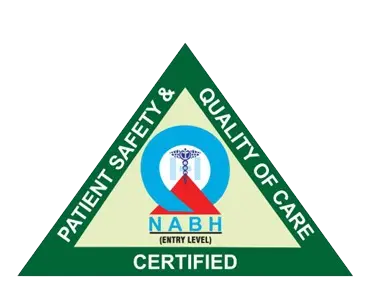At present time psychologists are dealing with different types of psychological issues, in which the most common psychological is anger issue. Every second person has a complaint about their anger issues, although anger is a natural emotion, which is a response to perceived threats or injustices, when it becomes uncontrollable and overwhelming then it points to focus on and needs professional help. It not only affects the individual mentally but also causes problems in one’s personal and professional life. In this blog, you will learn the top 5 warning signs of anger issues so that without wasting any more time you can seek professional help.
1. Frequent and Intense Outburst
One of the most common and visible signs of anger issues sis is the intensity and frequency of getting angry. If you are getting angry at a minor inconvenience that wouldn’t have affected you normally or you are physically torturing yourself or someone, breaking things, or yelling at others for no reason then it is a serious issue and needs a counselor. Everyone experiences anger but people who act disproportionately need to consult specialists.
-
Why it can’t be ignored?
Having such kind of anger where the individual is getting physically abusive, or yelling can be unsafe for a family member and can impact their relationships negatively. Getting back to normal can bring a lot of guilt to the individual creating a very confusing state for the family and the individual.
-
When to seek help”
When it is seen that an individual is frequently getting angry and is causing harm to themselves or others then it is essential to seek help.
2. Physical Symptoms During Anger
Anger not only affects the person’s mental health but also can be seen through physical actions, such as increased heart rate, sweating, trembling, or even feeling dizzy. These symptoms occur because anger triggers the body’s fight-to-fight response, flooding your senses with adrenaline and other stress hormone.
-
Why it is concerning?
The signs affect physical health till the time the person is angry. But if it continues for a longer duration then it can cause many problems such as hypertension, heart disease, or chronic headaches.
-
When to seek help?
When you notice that these physical symptoms are no longer limited to the period you get angry but are now affecting your daily life and mood then you should consult a psychologist.
3. Difficulty Compromising or Expressing Empathy
People dealing with anger issues often find it difficult to listen to others or see things from other people’s perspectives. They find it challenging to comprise or adjust, just for the sake of others. Rather they become defensive or angry when someone disagrees with them or refuses their demand. This lack of empathy often creates arguments and conflicts with other people which as a result makes it difficult for the individual to maintain relationships with people.
-
Why it is concerning?
When you are unable to empathize with anyone people don’t tend to be with you or would not feel comfortable with you which will bring you isolation and loneliness. This will worsen your mental state and can make you depressed.
-
When to seek Help?
If you find yourself frequently involved in fights and conflicts with others and people around you, people like to stay away from you or maintain a distance from you because of your behavior, it is clear that you need to seek counseling.
4. Holding Grudges and Unresolved Anger
Many people get easily angry but if they get normal as soon as they distract their mind then they are normal. But people with anger don’t come back to a normal state quickly. They hold grudges for the person due to which sometimes people commit crimes. Instead of resolving conflicts and letting go of grievances, they often ruminate on past wrongs.
-
Why it’s Concerning:
Keeping grudges for someone and not forgiving them can create a sense of hatred in the individual which can lead to chronic stress, anxiety, depression, and criminal thoughts
-
When to seek help:
If you find it very hard to forgive others and still remember conflicts with people and have a hate for them, then you must seek help.
5. Regret and Guilt After Outbursts
People with anger issues usually regret or feel guilty about whatever they did at the time they were angry. This becomes a loop for them from which they cannot come out easily. Although it is normal to feel bad about losing your temper, persistent feelings of regret or guilt can indicate a deeper problem
-
Why it is concerning?
Continuously feeling guilty can affect a person mentally which can cause depression and anxiety. It can also bring under-confidence and can damage your self-worth making it harder for you to control your anger issues.
-
When to seek help?
If you are frequently feeling guilt and regret after anger episodes then you should consult a psychiatrist. They can help you out with counseling and other methods.
Conclusion
Anger issues are a mental condition that is developed over time. When individuals face consistent failure, no family support, any past trauma, or high underconfidence, everything can create a sense of irritation and frustration, which comes out in the form of anger. When this becomes a habit, the individual loses control over their anger leading to anger issues. By identifying these warning signs anyone can identify whether they or their known is suffering from anger issues. Seek the help of a psychiatrist as it will not only help them but will also improve their quality of life.




